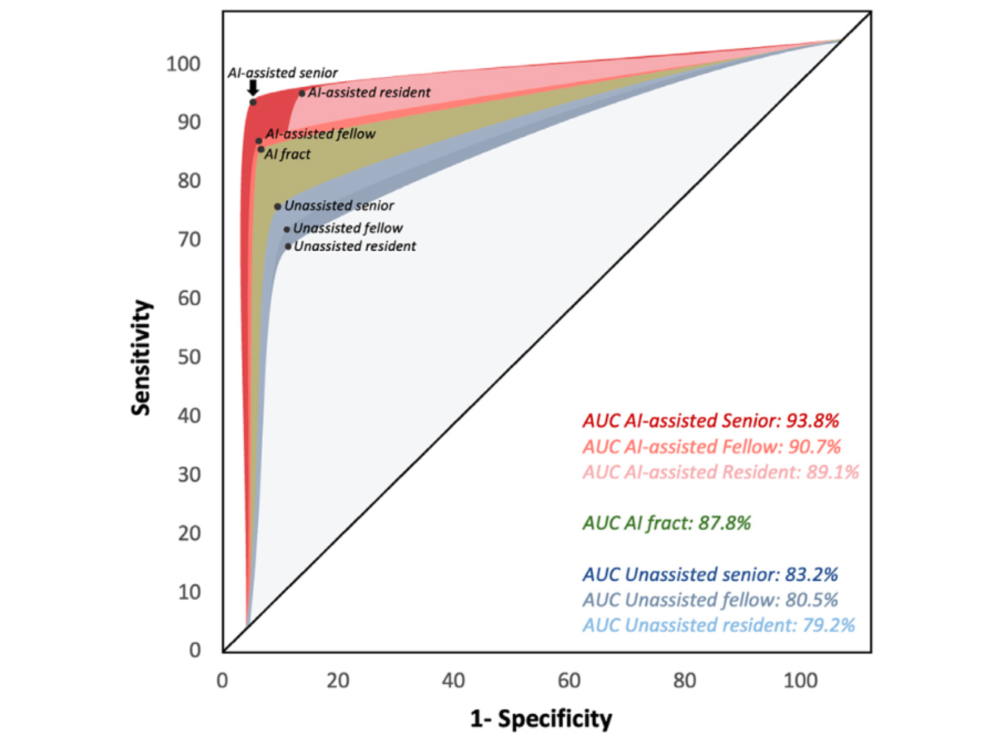Added value of an artificial intelligence solution for fracture detection in the radiologist's daily trauma emergencies workflow
Purpose
The main objective of this study was to compare radiologists’ performance without and with artificial intelligence (AI) assistance in the detection of bone fractures from trauma emergencies.
Materials and methods
Five hundred consecutive patients (232 women, 268 men) with a mean age of 37 ± 28 (SD) years (age range: 0.25–99 years) were retrospectively included. Three radiologists independently interpreted radiographs without then with AI assistance after a 1-month minimum washout period. The ground truth was determined by consensus reading between musculoskeletal radiologists and AI results. Patient-wise sensitivity, specificity, positive predictive value (PPV), and negative predictive value (NPV) for fracture detection and reading time were compared between unassisted and AI-assisted readings of radiologists. Their performances were also assessed by receiver operating characteristic (ROC) curves.
Results
AI improved the patient-wise sensitivity of radiologists for fracture detection by 20% (95% confidence interval [CI]: 14–26), P< 0.001) and their specificity by 0.6% (95% CI: -0.9–1.5; P = 0.47). It increased the PPV by 2.9% (95% CI: 0.4–5.4; P = 0.08) and the NPV by 10% (95% CI: 6.8–13.3; P < 0.001). Thanks to AI, the area under the ROC curve for fracture detection of readers increased respectively by 10.6%, 10.2% and 9.9%. Their mean reading time per patient decreased by respectively 10, 16 and 12 s (P < 0.001).

Conclusions
AI-assisted radiologists work better and faster compared to unassisted radiologists. AI is of great aid to radiologists in daily trauma emergencies and could reduce the cost of missed fractures.

